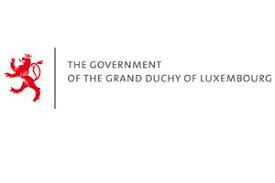Bhutan 2016
The purpose of the assessment of the Public Financial Management (PFM) performance of the Royal Government of Bhutan (RGoB) was threefold: (i) to assess the quality (strengths and weaknesses) of PFM in the country against generally accepted international standards; (ii) to assess progress since the last PEFA assessment in 2010, and (iii) to provide RGoB and other stakeholders with a common source of information as a basis for further dialogue on PFM reforms. As the last assessment, dated June 2010, used the 2005 framework, the same framework was used for determining progress since 2010. This assessment was carried out under the approach of full ownership by RGoB and self-assessment by its officials, with technical support from World Bank and IMF. The team, comprising of World Bank staff and consultants, the Regional IMF PFM Advisor and RGoB officials, conducted the assessment initially using the 2015 Testing Version of the PEFA framework and a questionnaire template. Initial drafts were prepared by the designated RGoB officials and discussed and agreed with the World Bank team members. As the final version of the 2016 PEFA framework was launched in February 2016, additional data was collected and the drafts were modified to meet the needs of the new Framework. The assessment covered all ten ministries of RGoB, oversight institutions such as the Royal Audit Authority and legislative committees, autonomous agencies funded by the RGoB, and local government bodies (dzongkhags, gewogs and thromdes). The latter were considered as deconcentrated units of the central government instead of sub-national governments, in accordance with PEFA criteria. All 31 indicators of the 2016 PEFA Framework were included in the assessment, and each indicator was assessed at the time or period prescribed in the Framework. The budget credibility indicators, for instance, were based on the last three financial years for which reliable revenue and expenditure data were available at the start of the fieldwork in October 2015, viz. FY 2012/13, 2013/14 and 2014/15.
Strengths and weaknesses identified in the report explains how PFM system performance affects thre main fiscal and budgetary outcomes, as discussed below:
Fiscal discipline is assisted by the comprehensive coverage of the RGoB’s Public Expenditure Management System, orderly execution of the budget, good control over expenditure commitments and fiscal risks, risk-based administration of revenue, timely and reliable financial reporting, and continued improvements in external audit and legislative scrutiny. At the same time, fiscal discipline is undermined by some lack of public transparency in administrative classification in the budget and accounts, which would inform and facilitate public demand for better accountability. It is also reduced by the limited economic appraisal of projects before inclusion in the budget, as the projected social and economic costs and benefits of proposed projects cannot be exposed to wider scrutiny.
Strategic allocation of resources is assisted by a strong planning and budgeting system that translates the Five Year Plans into sectoral strategies, programs and annual budgets within a rolling three-year fiscal framework. Favorable factors are the amount of time allowed to agencies to prepare their budgets, and the reliability of resource flows to service delivery units in accordance with annual budgets (at least where resources are domestically funded). Efficient use of resources for service delivery is assisted by competitive procurement, which yields greater value for money. The recent adoption of a performance management system, based on annual performance agreements with the Prime Minister, is potentially a powerful tool for cost control and efficiency savings, though it is not yet fully developed. The introduction of Annual Performance Agreements is a very important innovation. These are integrated with the budget process but, so far, are only available to the public in a few cases. Accountability would be significantly strengthened if they were published along with financial budgets and out-turns.
Efficient use of resources for service delivery is assisted by competitive procurement, which yields greater value for money. The recent adoption of a performance management system, based on annual performance agreements with the Prime Minister, is potentially a powerful tool for cost control and efficiency savings, though it is not yet fully developed.
The introduction of Annual Performance Agreements is a very important innovation. These are integrated with the budget process but, so far, are only available to the public in a few cases. Accountability would be significantly strengthened if they were published along with financial budgets and out-turns.
The transparency is a vital aspect of PFM performance. Civil society and community organizations can exercise an important role in budget management, both by participation in the budget preparation process and by monitoring actual performance, but only if relevant fiscal information is freely available,timely and reliable. The RGoB issues an Annual Budget Report in both Dzongkha and English languages, which facilitates public discussion of budgets and results.
Since the 2010 PEFA assessment and the implementation of a comprehensive PFM reform program, RGoB has led a wide array of reforms in planning and budgeting, revenue administration, asset and liability management, procurement, internal control, internal audit, reporting, external audit and oversight. In 2013, a new initiative was launched on performance management. Some of these reforms are ongoing or still being consolidated. Their impact on the generic goals of budget management is not measurable but appears to be far-reaching.





